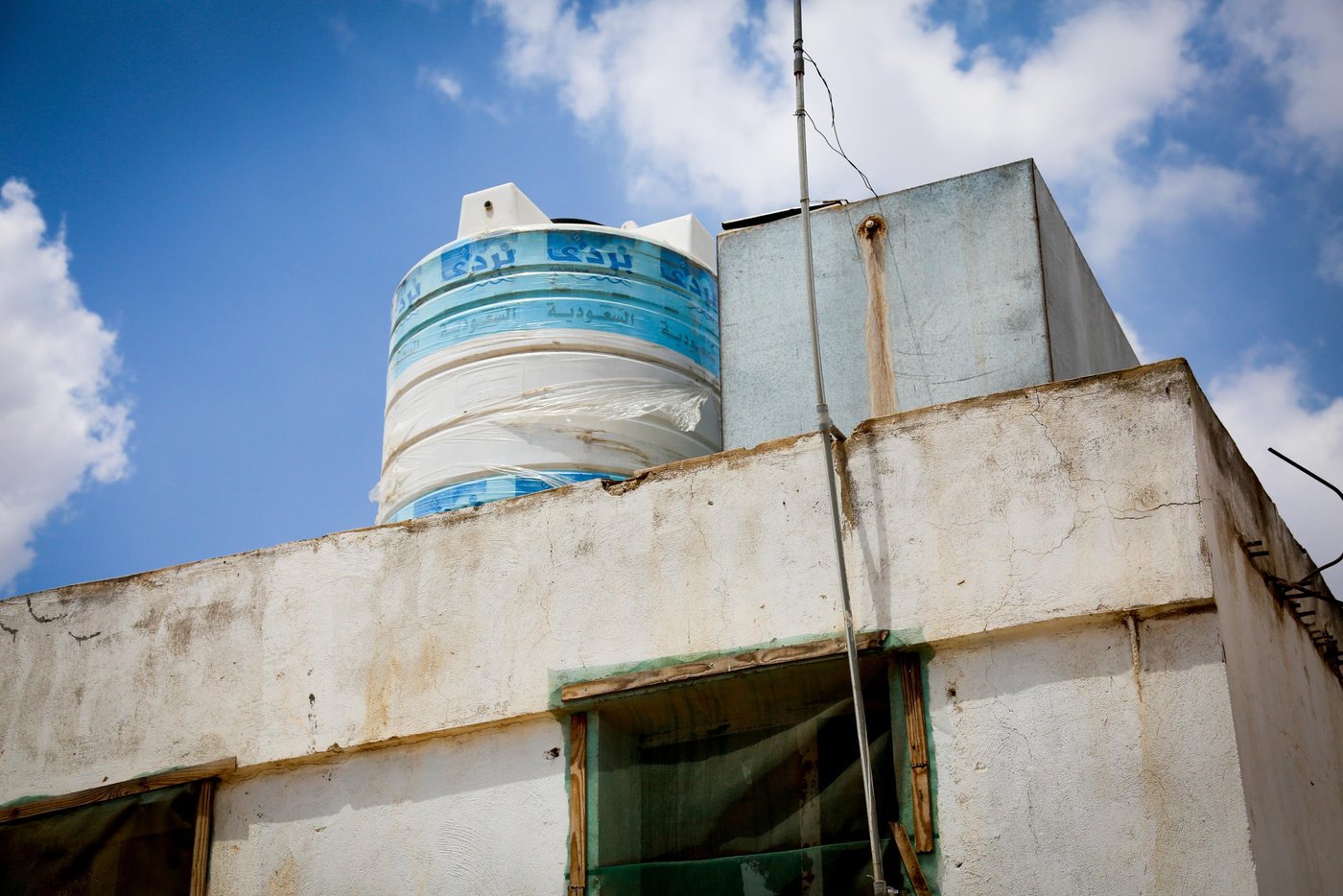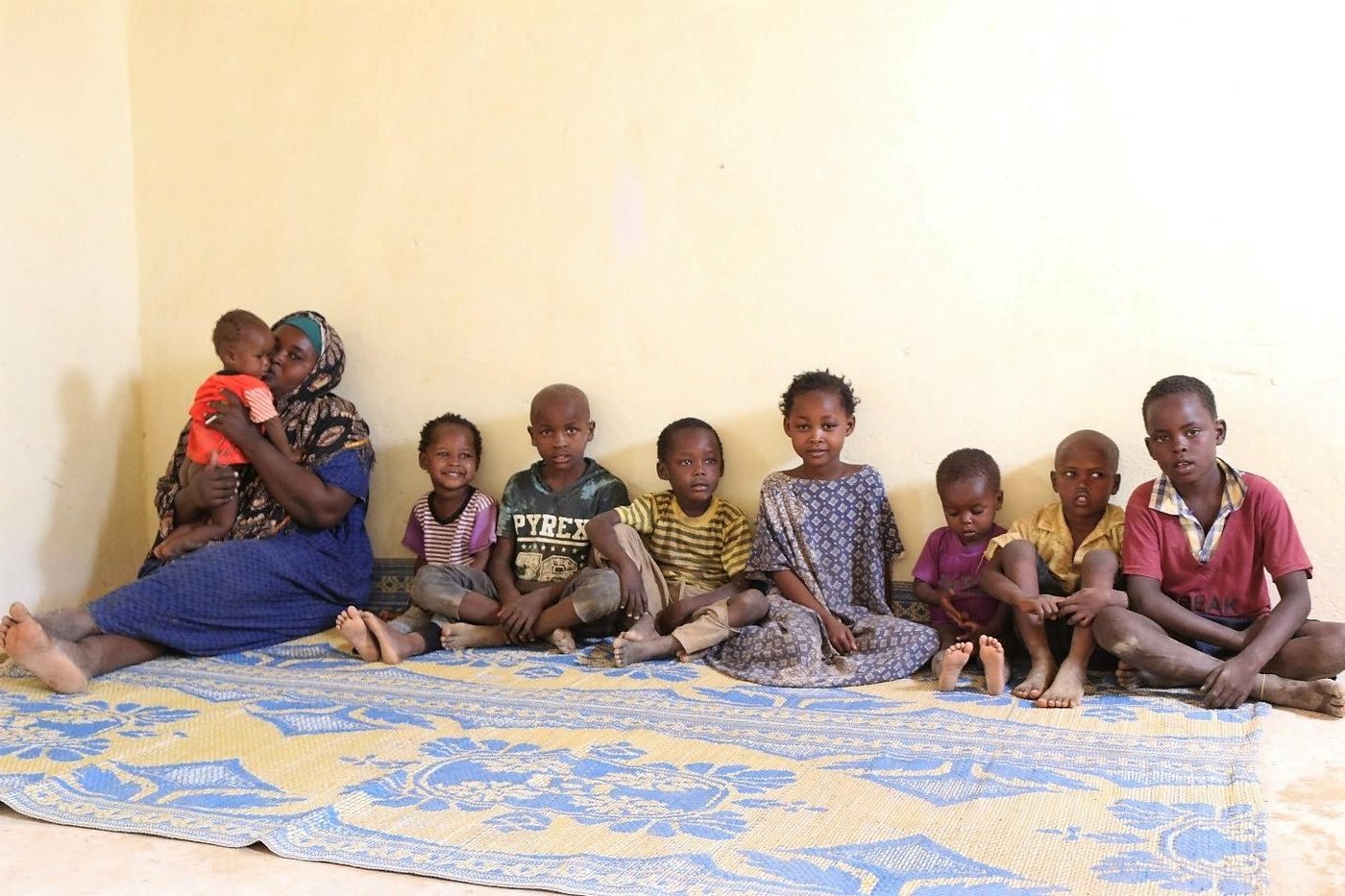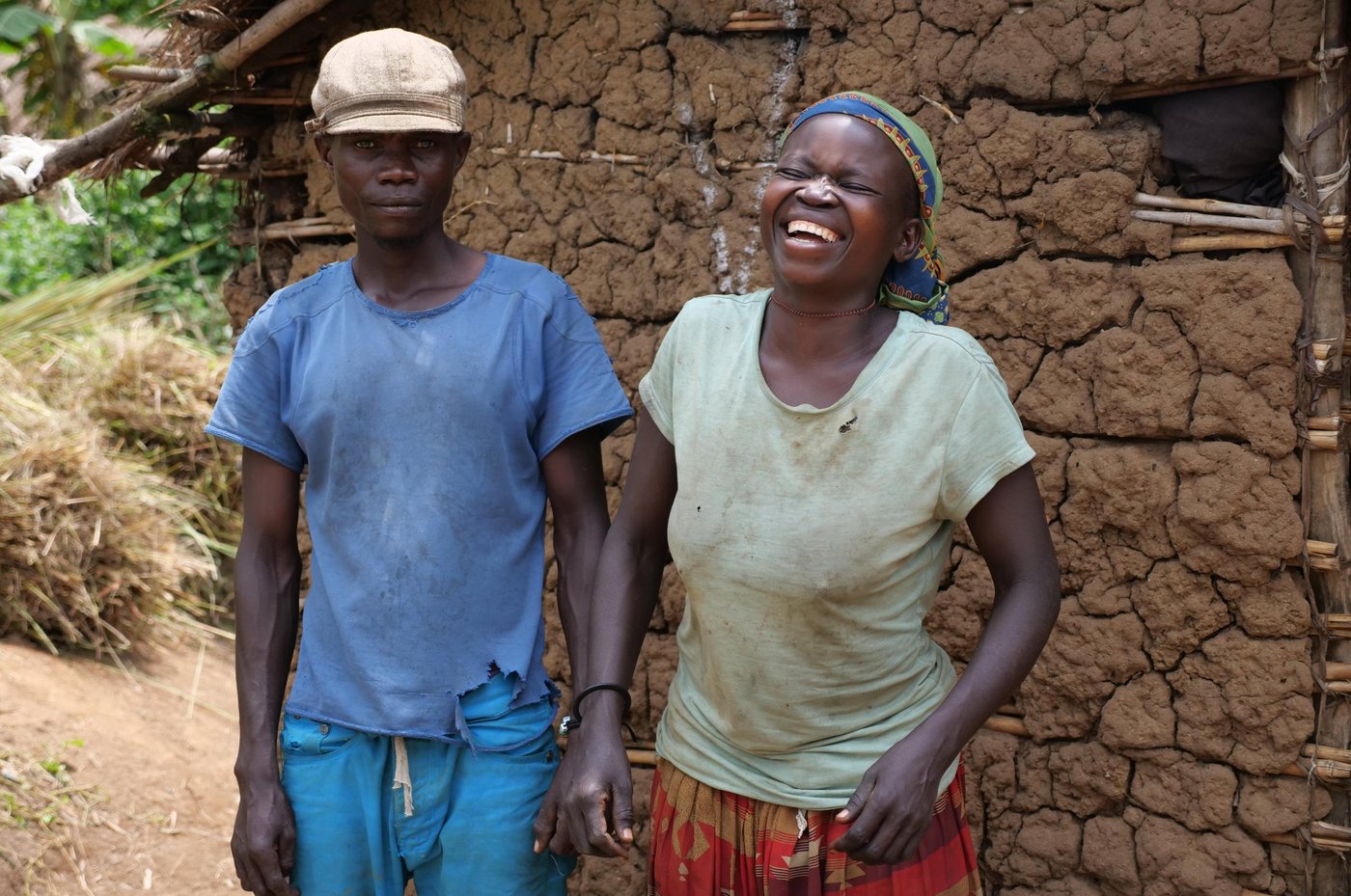In eastern DR Congo, a decades-long conflict has caused hundreds of thousands of people to flee their homes. Many villages have been destroyed, and many villagers left homeless. NRC is helping to provide new homes for hundreds of displaced people in Ituri province.
When people suddenly lose their home and community in this way, it is devastating – both in the immediate aftermath of flight, and in the longer term. Providing a safe place for people to call “home” can be life-saving.
At NRC, we believe that shelter and settlements support is the foundation of humanitarian assistance. We work to provide safety, an identity and a foundation for recovery for families and communities displaced by conflict.
A difficult decision
Ituri, one of DR Congo’s 26 provinces, has seen over 300,000 people flee their homes due to ongoing violence, according to UN figures.
Emmanuel Mbutyabo was one such person. He left his home in Mousezo, where he was village chief, and walked through the night, a journey of 18 km, to the town of Irumu Centre.
“We fled without taking anything with us. Nothing but the clothes on our backs. We fled in the middle of the night. I went in one direction and my wife went in another direction. It was only after arriving here in Irumu that we found each other again.”

Emmanuel and his family spent 18 months at a site for displaced people in Irumu with over 400 other families. Then, they were forced to take a difficult decision. The authorities decided to close the site because they judged that the security situation in the surrounding villages had improved to a point where villagers could return home.
Cash and support to build homes
Some site residents, such as Rimalatsobi and his wife, decided to return to their home village. There, we provided them with cash assistance to pay for construction materials and labourers to rebuild their house.
Others, such as Emmanuel, made a formal request to be able to stay in Irumu after the site closed. With funding from USAID’s Office of US Foreign Disaster Assistance (OFDA), we set out to support their bid. We provided training for the families on land acquisition procedures, and briefed local authorities about their case.
I am now no longer a displaced person, I am now locally integrated here.Emmanuel Mbutyabo
Our efforts were successful and each of the 324 families was granted a plot of land. We assisted with marking out the plots and helped the families obtain land titles declaring their ownership. We also provided cash assistance to every family so that they could begin constructing houses on their new land.
Emmanuel is thrilled. “I am now no longer a displaced person, I am now locally integrated here,” he declares proudly.
Emmanuel is one of more than 1.5 million people around the world who benefitted from our shelter and settlement programmes in 2018. Here are just a few of the ways we make a difference.
1. Emergency assistance
Protection from the elements is vital for people forced to flee. Extremes of heat, cold, wind and rain can be enormously taxing for families. Finding suitable shelter after a stressful and difficult journey can mean the difference between life and death.
In the winter of 2018–19, Syrian refugees in Jordan were hit by extreme weather, with rain, wind and biting cold. The Norwegian Refugee Council (NRC) was on the ground in Azraq camp in the east of the country, helping refugees prepare for the freezing months ahead.

Most of the 36,000 Syrian refugees in Azraq live in simple metal shelters which become very cold without insulation. For the past six years, we have distributed insulation material, clothes, blankets, mattresses, stoves and gas cylinders to refugees arriving at the camp. Lutfieh is one of the many residents who have received help. She lives in a shelter with her sister, next door to her son Issam and his wife and eight children.
“My mother is an old woman. She needs to stay warm. We are still using the items NRC gave us. They are essential. Most important was the insulation material, as it helped to contain the warmth inside the shelter,” says Issam.
Read Lutfieh and Issam’s story
2. Cash-for-rent
After the initial chaos of flight and its aftermath, displaced people may find themselves out in the “real world”, living in urban environments alongside host communities. Although this affords them a certain amount of freedom, it can also leave them poor, powerless and vulnerable to exploitation.
In another part of Jordan, the northern city of Ramtha, Abu and Um Ayham spent five years in shabby and unsuitable housing after they fled from Syria. With insufficient water, leaking sewage and a bug infestation, life for them and their four children was uncomfortable and insecure.

After evaluating the conditions, NRC’s shelter team agreed to take care of some of the house renovations. We fixed the septic tank, added a new fresh water tank and fitted a new front door. In exchange, the landlord agreed to give the family a six-month period rent-free. Once the period was over, we continued to support the family with their monthly payments for another year.
“With the renovations and without the burden of rent we are less worried and concerned. We feel comfortable psychologically. In the future, we want to have safety and security again,” explains Um Ayham.
3. Lasting solutions through local integration
Even when displaced people are established in a new area, it can take years before they are properly integrated. Local restrictions and prejudices can often mean that they are unable to find work or suitable accommodation.
In Somalia, violence, floods and droughts have displaced thousands of people since the 1990s, and the trend continues today. In 2001, Aisha fled from the violent conflicts in Mogadishu to Garowe, a city almost 1,000 km north of Somalia’s capital. There she encountered a different set of problems. In the settlements, she felt constantly vulnerable to sexual violence, robbery, hunger, fire and heavy rain, among other things.

After spending 18 years of her life in these conditions, Aisha and her family finally became integrated members of the local community, with support from NRC. Aisha received a plot of land and support to construct a new house, together with land tenure documentation, and training in housing, land and property rights.
I have long relied on assistance to sustain my life, but this is the only time that I felt that my opinion mattered.Aisha
Unlike traditional projects that follow a certain blueprint, Aisha dictated how her new home would look. Buying local material and hiring local contractors, she oversaw the whole operation.
“I have long relied on assistance to sustain my life,” says Aisha, “but this is the only time that I felt that my opinion mattered.”
Facts and figures
In 2018 a total of 1,569,081 people benefited from our shelter and settlements support, spread over 26 countries around the world.
Find out more about our shelter and settlements work
How you can make a difference
Join us in supporting the 70.8 million people displaced by war and persecution worldwide. You can contribute to our work in the following ways:
- Make a donation to NRC today – via our safe and easy online donation system.
- Start your own fundraising page – and invite friends and family to help you reach your target.
- Read about ten things YOU can do for the world’s refugees – and discover some creative ways that you can raise money and awareness.
For alternative ways to donate, or if you’re a US citizen looking to make a 100% tax-deductible donation, please see our Make a difference page.


